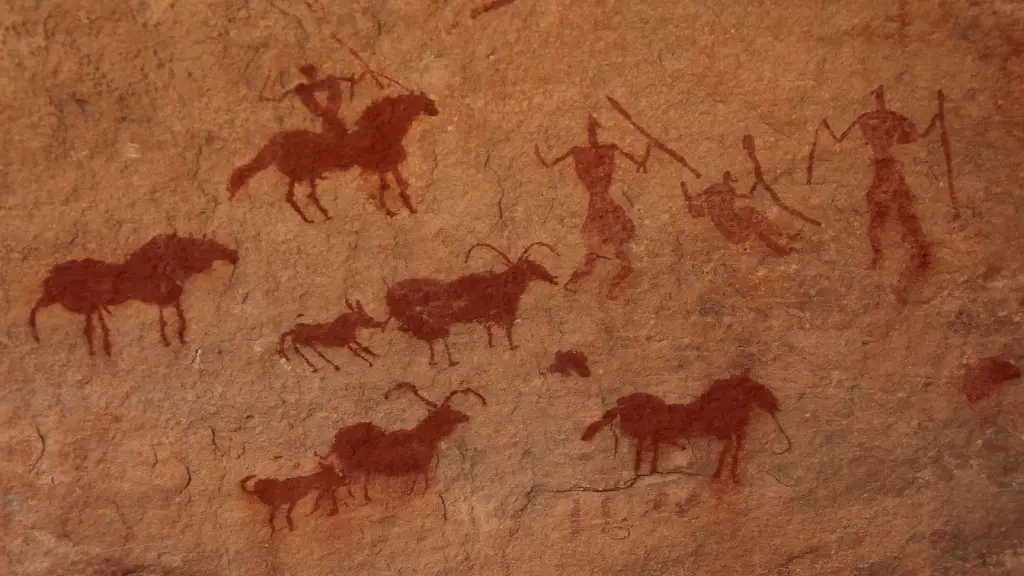If you’re dreaming of a journey that blends ancient culture, breathtaking architecture, and unforgettable adventures, Algeria is calling your name. With stunning Algeria UNESCO World Heritage Sites, timeless monuments, and magical cities like Constantine, Algeria offers a unique travel experience many have yet to discover. At Go Assekrem, we’re here to guide you through the best historical and cultural destinations across the country.
In this guide, we’ll take you on a virtual tour of Algeria’s most impressive UNESCO-listed sites, explain their significance, and help you plan the trip of a lifetime.

Table of Contents
Why Choose Algeria for Your Next Historical Adventure?
Algeria is home to seven UNESCO World Heritage Sites, each telling a unique story about the civilizations that once thrived here. These sites span from Roman ruins to Islamic architecture, from ancient rock art to fortified villages.
Here’s why Algeria should be on your historical travel bucket list:
- Fewer crowds than European destinations
- Authentic, unspoiled experiences
- A mix of desert, mountain, and Mediterranean landscapes
- Deep historical and cultural roots
What is a UNESCO World Heritage Site?
UNESCO World Heritage Sites are landmarks recognized by the United Nations for their cultural, historical, scientific, or natural significance. Algeria’s sites are recognized for their outstanding value to humanity and are legally protected under international treaties.
Algeria’s 7 UNESCO World Heritage Sites
Let’s explore the wonders Algeria has to offer:
1. Al Qal’a of Beni Hammad
The ruins of the first capital of the Hammadid dynasty, founded in 1007, offer insights into early Islamic architecture in North Africa.
Highlights:
- Tower of the fortress
- Mosque remains
- Palace ruins
Best Time to Visit: Spring or Fall
2. Djémila (Cuicul)
Djémila is one of the best-preserved Roman towns in North Africa. The layout, forums, temples, and basilicas remain intact.
Highlights:
- Arch of Caracalla
- Roman theatre
- Christian basilica
Fun Fact: The site reflects the adaptation of Roman town planning to a mountain environment.
3. M’Zab Valley
A unique example of traditional human habitat perfectly adapted to the desert environment.
Highlights:
- Walled cities (ksour)
- Islamic architecture
- Community lifestyle
Experience Tip: Stay in a local guesthouse to enjoy the traditional way of life.
4. Timgad (Thamugadi)
A Roman colonial town founded by Emperor Trajan in 100 A.D. Known as the “Pompeii of Africa.”
Highlights:
- Arch of Trajan
- Roman library
- Amphitheatre
5. Tassili n’Ajjer
This vast plateau in the Sahara Desert is home to more than 15,000 rock paintings and engravings.
Highlights:
- Prehistoric art
- Dramatic landscapes
- Unique flora and fauna
Best For: Adventure lovers and photographers
6. Tipasa
A coastal town that blends Phoenician, Roman, and Christian ruins. It served as a major Roman military center.
Highlights:
- Roman amphitheatre
- Basilica
- Breathtaking sea views
7. Kasbah of Algiers
A maze of narrow streets, historic homes, palaces, and mosques in the heart of Algiers. A living piece of history.
Highlights:
- Ottoman architecture
- Stunning views over the Mediterranean
- Traditional souks
Constantine City: Algeria’s Hanging City
While not a UNESCO site, Constantine City deserves a special mention. Known as the “City of Bridges,” it sits atop dramatic gorges connected by picturesque bridges. Constantine’s history dates back more than 2,000 years.
Must-See Spots:
- Sidi M’Cid Bridge
- Emir Abdelkader Mosque
- Palace of Ahmed Bey
Travel Tip: Take a cable car ride for panoramic views of the city.
Algeria Monuments You Shouldn’t Miss
In addition to UNESCO sites, Algeria boasts countless other monuments worth exploring:
| Monument | Location | Description |
|---|---|---|
| Maqam Echahid | Algiers | Martyrs’ Memorial honoring independence fighters |
| Ketchaoua Mosque | Algiers | Ottoman-era mosque at the foot of the Kasbah |
| Roman Theatre | Timgad | Well-preserved Roman entertainment structure |
| Dey’s Palace | Algiers | Former residence of Ottoman rulers |
Algerian Caftan: A Living Heritage
Fashion meets culture with the Algerian Caftan, now recognized as an intangible UNESCO heritage. This elegant garment reflects centuries of tradition, craftsmanship, and Algerian identity.
Where to See It:
- Cultural festivals in Algiers, Oran, and Constantine
- Local artisan boutiques
Why It Matters: The caftan showcases how Algeria’s rich past continues to thrive in modern times.
How to Plan Your Visit to Algeria’s World Heritage Sites
Suggested Itinerary:
| Step | Destination | Highlights |
| 1 | Algiers | Kasbah, Maqam Echahid, Dey’s Palace |
| 2 | Tipasa | Roman ruins and sea views |
| 3 | Djémila | Ancient Roman city |
| 4 | Constantine | Hanging bridges and palaces |
| 5 | Timgad | Roman library and theatre |
| 6 | M’Zab Valley | Desert ksour and local life |
| 7 | Tassili n’Ajjer | Sahara rock art and adventure |
What to Expect: Travel Tips
- Language: Arabic and French are widely spoken. English is growing.
- Currency: Algerian Dinar (DZD)
- Best Time to Visit: March–May and September–November
- Safety: Most tourist areas are safe. Always check travel advisories.
Book Your Algeria Adventure with Go Assekrem
At Go Assekrem, we offer tailor-made historical and cultural tours to all major Algeria UNESCO sites. Whether you want a private tour or group adventure, we make your trip smooth and memorable.
Why Travel with Us?
- Expert local guides
- Comfortable transportation
- Affordable and flexible packages
Ready to explore Algeria’s world-class heritage?
Contact us today to start planning your unforgettable journey.
Final Thoughts
Algeria is a treasure chest of history, culture, and breathtaking landscapes. From the grandeur of Constantine City to the prehistoric art of Tassili n’Ajjer, every corner of this country tells a story worth hearing. Don’t miss the chance to walk through living history and discover the heart of North Africa.
Explore. Experience. Remember.
Let Go Assekrem be your guide to Algeria’s most iconic and awe-inspiring UNESCO sites.
External Links:
